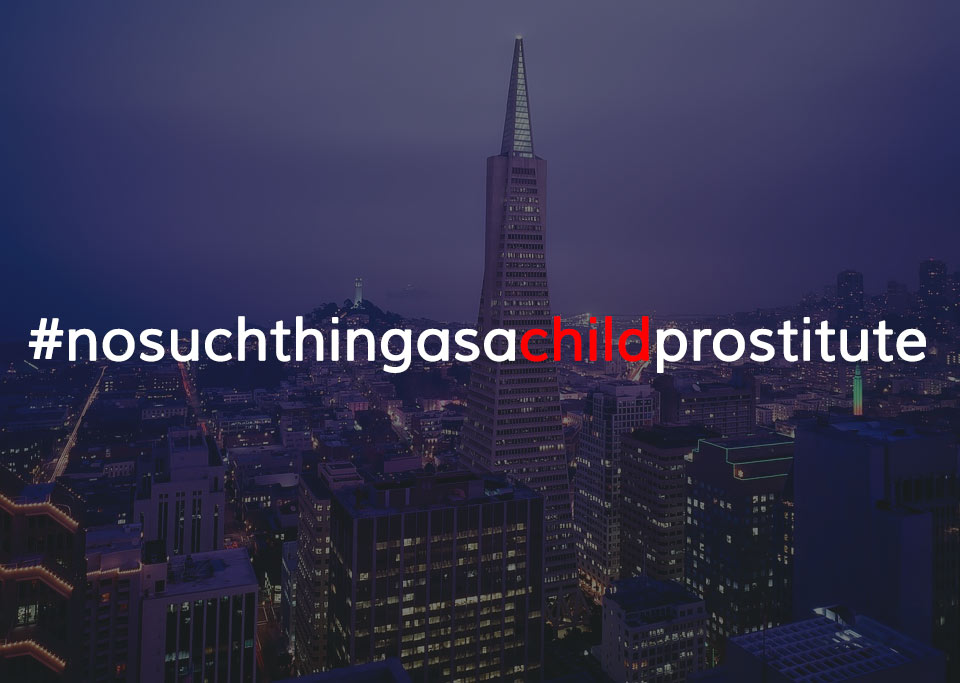A bill sits on Governor Jerry Brown’s desk designed to address the sex trafficking of children in California. While many people have joined the cause to fight sex trafficking abroad, few realize that it occurs in their own neighborhoods. Who would think that California, the land of sunshine, natural beauty, and “good vibes,” hides a dark history of sex-related crime?
Miya was a normal teenager working multiple jobs to save up money for college. One day, while selling sunglasses at the mall, a couple approached Miya and lured her with the promise of a modeling career. She was captured, trafficked to California, forced into prostitution, and subject to repeated physical and emotional abuse. Imagine – girls like Miya finally escape their torturer only to be criminalized for a situation in which they were the victim. Sadly, this is all too often the case.
The problem is not limited to California’s laws. The appalling truth is, across the nation, only 15 states have enacted state prostitution laws that prohibit the criminalization of juvenile sex trafficking victims; however, progress is being made. Influenced by Shared Hope International’s Protected Innocence Challenge, a comprehensive study of state laws that form the framework of protections for child sex trafficking victims, five states in the last year alone, enacted legislation to prevent the criminalization of minors involved in prostitution. Additionally, 2016 is the first year that all 50 states have passed legislation criminalizing the sex trafficking of minors.
 However, after receiving a “D” on its Protected Innocence Challenge Report Card in 2015, California’s laws need improvement. The state previously enacted the California Trafficking Victims Protection Act, which criminalized human trafficking, and the Human Trafficking Collaboration and Training Act, which required law-enforcement officers to complete response training, but it is not enough. While these bills created reports and established the California Alliance to Combat Trafficking and Slavery, the stigma surrounding prostitution remains engrained in the minds of both citizens and law enforcement officials. Jim Saleda, an Oakland Police officer, described the unit’s increased understanding of the complicated issue: “When we first started, the attitude toward prostitutes was ‘clear the streets.’ Now…we treat them as victims.” Unfortunately, this new attitude is not wide-spread.
However, after receiving a “D” on its Protected Innocence Challenge Report Card in 2015, California’s laws need improvement. The state previously enacted the California Trafficking Victims Protection Act, which criminalized human trafficking, and the Human Trafficking Collaboration and Training Act, which required law-enforcement officers to complete response training, but it is not enough. While these bills created reports and established the California Alliance to Combat Trafficking and Slavery, the stigma surrounding prostitution remains engrained in the minds of both citizens and law enforcement officials. Jim Saleda, an Oakland Police officer, described the unit’s increased understanding of the complicated issue: “When we first started, the attitude toward prostitutes was ‘clear the streets.’ Now…we treat them as victims.” Unfortunately, this new attitude is not wide-spread.
Young sex trafficking victims are treated as criminals and suffer unjust, traumatizing consequences, such as search, arrest, and detention, which intensifies their trauma, sends the message that they are responsible for the violence committed against them, and produces a distrust of the justice system. The emotional toll of this process alone affects the success of the overall fight against sex trafficking and undermines relationships with law enforcement, prosecutors, child welfare, and service providers. Most federal and state trafficking laws define a commercially sexually exploited minor as a victim of sex trafficking. Why will that same child face criminal charges under the prostitution law for an act they legally cannot consent to? No other child will suffer criminalization for their own sexual abuse, yet minors who are sex trafficked will face fines and jail-time, which reinforces trauma bonds with their traffickers, denies them immediate, necessary services, and hinders their ability to successfully recover from their past.
Senate Bill 1322, which was sent to Governor Brown on August 30 for approval, is a necessary and fundamental step in eliminating child sex trafficking, as well as the stigma surrounding it. With the production of this bill, California is at the forefront of a rapidly growing number of states that are taking strides towards ending human trafficking. Shared Hope International is making efforts through its Legislative Action Center to ensure that the bill passes and successfully prevents juvenile sex trafficking victims from being unfairly criminalized for their own victimization.
There is no such thing as a “child prostitute”, and there cannot be a true shift in the cultural view until the law treats them consistently as victims of abuse. However, even non-criminalization is not the full solution to this complex issue. Abused youth must be connected with services, not punishment .Without access to proper services, these children remain at risk of being re-exploited. With the production of Senate Bill 1322, California has taken the first step, yet policy makers, law enforcement, prosecutors, service providers, and society must join together to compassionately support children abused by the horrors of sex trafficking. Shared Hope International remains committed to encouraging the creation of a robust system of services for victims through the JuST Response Initiative.
You too can help California take this first step in making sure that child abuse victims receive protection and proper treatment by joining in the efforts of the National Center for Youth Law and West Coast Children’s Clinic and Rights4Girls, California organizations leading the fight against the criminalization of minor sex trafficking victims. Submit a support letter to Governor Brown through the CWDA website or join their Twitter campaign (@CWDA_CA, @ncyl_CSEC, @rights4girls and @westcoastccorg), using the hashtag #nosuchthingasachildprostitute.






